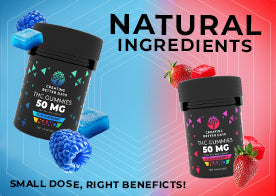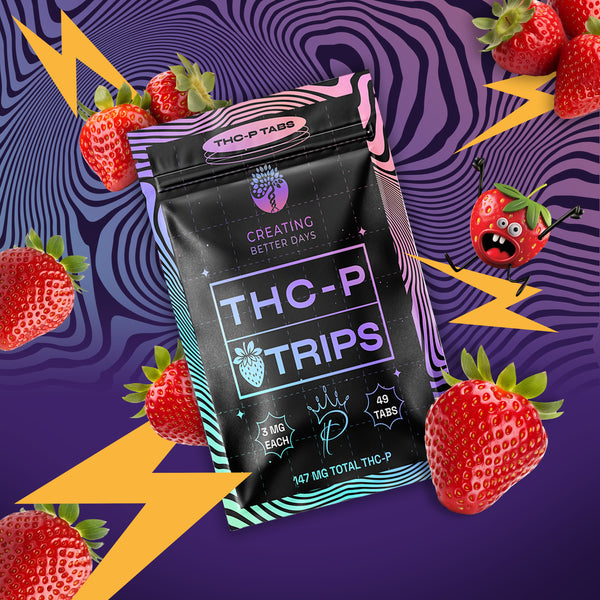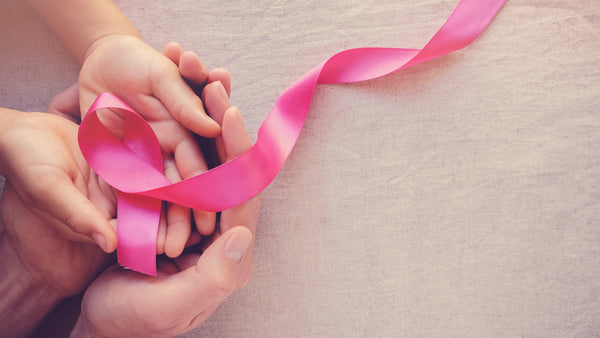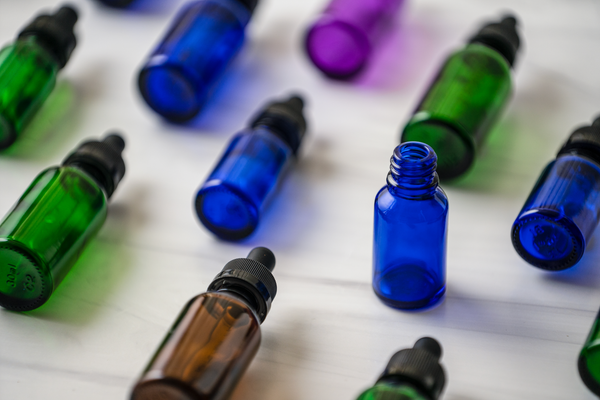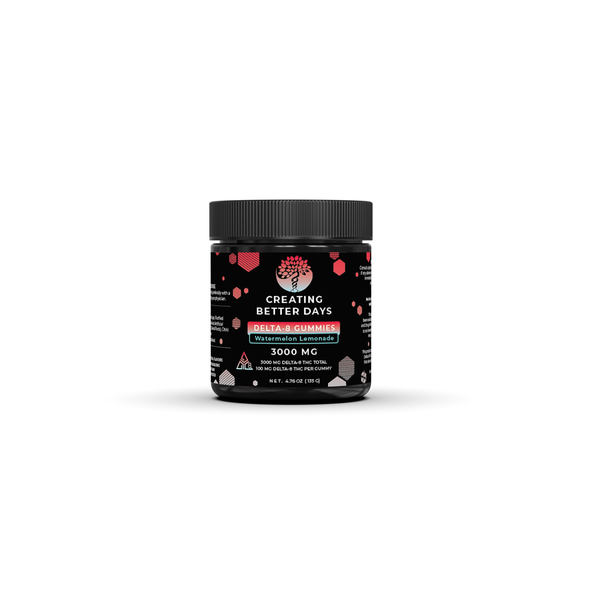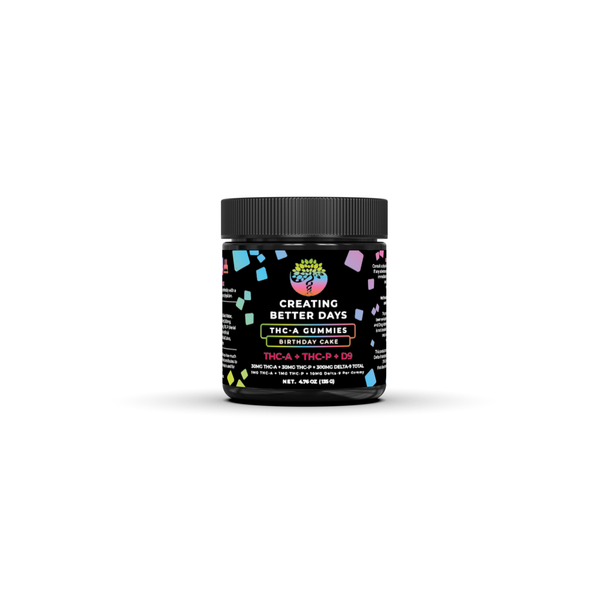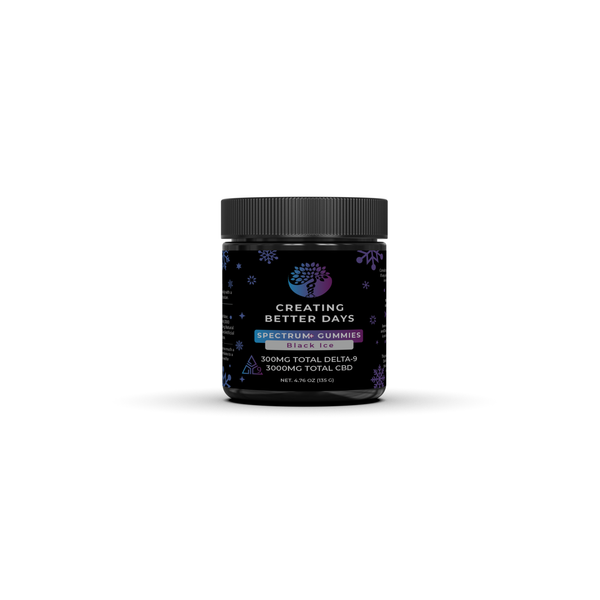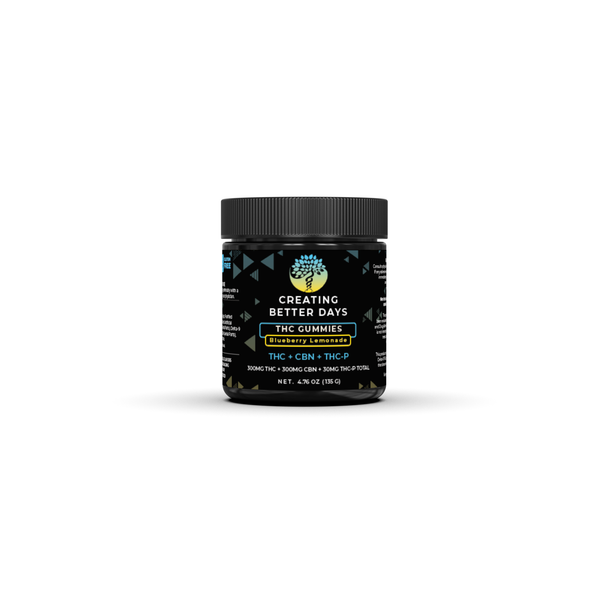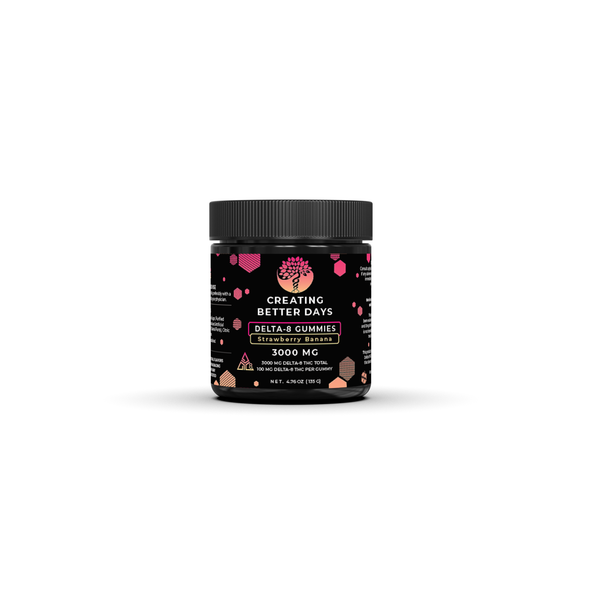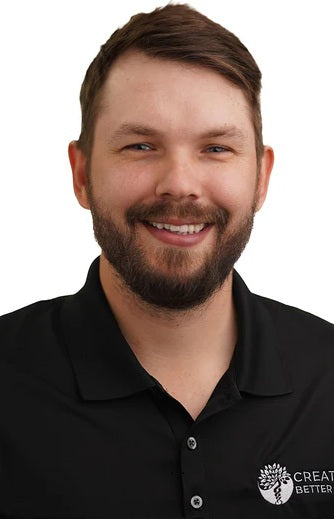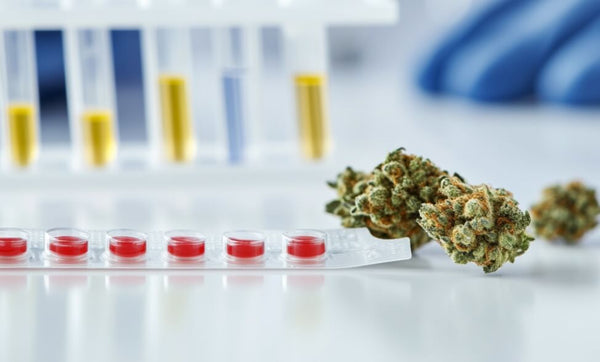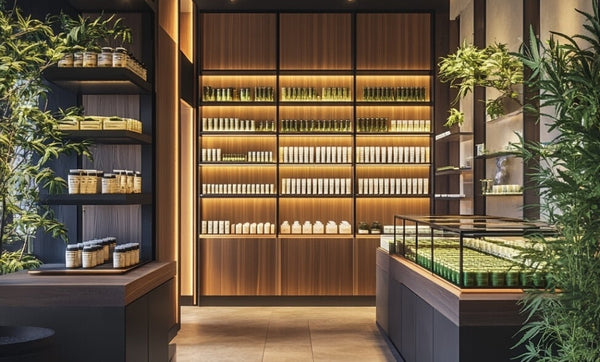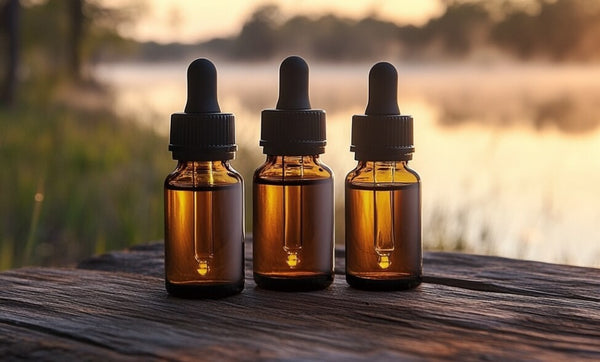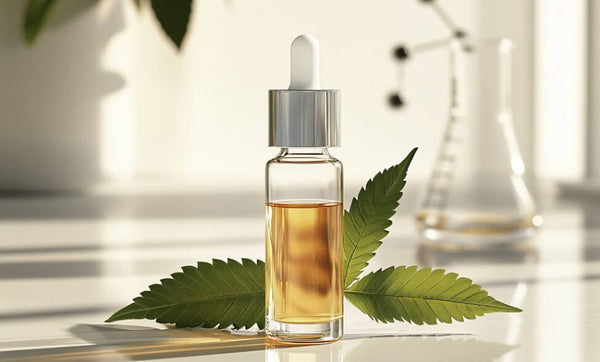
What Is THCP?
There's no need to feel alone if you've wondered what all the fuss was about THCP. Cannabinoid enthusiasts and casual consumers alike have been wondering, "What is THCP?" A cannabinoid that is gaining in popularity due to its distinctive properties, THCP is getting attention. We here at Creating Better Days want to tell our community all about the latest and greatest in cannabinoids, so let's dive into what you need to know about THCP. Regardless of your level of cannabis expertise, this guide is designed for you.
Table of contents
Key Takeaways
-
THCP stands for tetrahydrocannabiphorol, a naturally occurring cannabinoid that's been discovered relatively recently.
-
Despite some significant differences, it interacts similarly with the endocannabinoid system.
-
THCP products, such as THCP gummies, are becoming widely available.
-
Always check the legality of THCP in your state before purchasing.
What Is THCP?
The cannabis plant contains the cannabinoid THCP (pronounced tetrahydrocannabiphorol). The Italian researchers found THCP in 2019, which had a distinct molecular structure. THCP has a longer alkyl side chain, with seven carbon atoms instead of five, like THC. This difference could be responsible for the way it better targets CB1 receptors in the brain. With the discovery just over a year ago, THCP continues to be of interest in scientific and cannabis circles and prompts new research. It is scarce, and with many applications — it's a fascinating new cannabinoid frontier.
Consider THCP, the cannabinoid "new kid on the block." The rumors are already flying, and rightly so. Because of its special attributes, it is already one of the promising candidates to be introduced into the marijuana industry. Scientists are just starting to see their full potential, so it's a very interesting topic for anyone who's into cannabis.
How THCP Interacts with the Endocannabinoid System
It is the endocannabinoid system (ECS) that regulates mood and appetite in the body. THCP gets into the ECS via CB1 and CB2 receptors. Its longer alkyl chain is what enhances the binding power of this ingredient, which surpasses that of THC. But, potency isn't always beneficial — always use wisely. Through interactions with the ECS, THCP might exert different physiological effects (though we need to see how exactly this works).
The ECS maintains the balance – or homeostasis – of the body. THCP's binding affinity is so strong that it could potentially be more potent than other cannabinoids. The way that THCP is playing on this complex system opens the possibilities of cannabinoid science and product development.
What Is the Difference Between THCP and THC?
The devil is in the details, even though the comparison between THCP and THC may seem straightforward. Their main difference is their alkyl side chains. Where THC is a five-carbon chain, THCP is a seven-carbon chain that is more readily absorbed by the receptor. This structural distinction can change how each compound behaves in the body. The two cannabinoids are both extracted from cannabis, but the unique composition of THCP makes it a pioneer in the cannabinoid world. THCP has been said to be THC's "stronger cousin," which is the extent to which it is potent on receptors.
These are the special qualities of THCP that scientists and manufacturers are already exploring. For users, these differences mean a new experience and the possibility to test some new products. If you know the differences, then you will be able to make the right decision on which cannabinoids or products to buy.
How Is THCP Made?
Synthetic Production vs. Natural Occurrence
Certain cannabis strains contain trace amounts of THC naturally. However, its scarcity has encouraged scientists to try synthetic production. To ensure consistency and purity, synthetic THCP is usually manufactured in a lab. It's an easier and more accessible solution for consumer markets. Although synthetic, THCP produced in the lab is chemically identical to its naturally occurring equivalent and, thus a reliable product.
THCP Extraction and Isolation
Separating the active component from the plant is the process of extracting THCP. Advanced extractions, like chromatography, isolate THCP from the other cannabinoids. These procedures ensure that the product is not impure and meets the market's standards. THCP is likely to become more popular as demand continues to increase and extraction methods are improving, which will bring this cannabinoid to consumers' fingertips.
The Legality of THCP
Where you live could be the issue of THCP being legal. Since the 2018 Farm Bill legalized cannabinoids derived from hemp that contain less than 0.3% Delta-9 THC, THCP is permitted in the US. However, state-specific laws can vary. Always read the local laws before buying THCP products. Keep up with what the law says: cannabinoid regulations are always evolving. Having knowledge of the laws allows you to dive in and test THCP products without getting into compliance pitfalls.
How to Find Out if THCP Is Legal in Other States
If you are interested in finding out if THCP is legal in your state, go to state sites or ask dispensaries. Legal information changes often, so be informed. Web resources such as cannabis advocacy organizations and state websites can be of help, too. If in doubt, check with certified retailers like us at Creating Better Days, who will help you find out if THCP is legal in your state.
What Is the Process of Synthesizing THCP?
THC-P (or tetrahydrocannabiphorol) is typically produced by harvesting cannabinoids from the marijuana plant and chemically reacting those to make compounds such as delta-9-tetrahydrocannabinol (THC) or THC-Free CBD or THC-P. That sometimes involves isomerization, where the molecular shape of THC is changed to give rise to THC-P. THC-P's "P" is "propyl," which is the alkyl side chain of THC-P, which gives it its distinctive endocannabinoid-like properties. While THC-P is present in the plant by default, its levels are so low that cultivation through selection isn't practical. That is why artificial synthesis is needed. By creating this synthesis, manufacturers can convert relatively inert cannabinoids into the psychoactive THC-P and, in doing so, open its potential as a hemp-based cannabinoid.
How to Buy THCP Products for Consumers
When shopping for THCP products, don't compromise on quality. We at Creating Better Days believe in providing the best quality products. Our THCP products (THCP gummies included) are all lab-tested and come with a COA for transparency and safety. Purchasing from us means selecting a reputable company with a proven track record. Our online store is incredibly user-friendly, too, so it isn't hard to find the right THCP products.
The Bottom Line: Where Can I Find THCP Products?
You can buy THCP products from reputable companies such as ours online. We at Creating Better Days care about quality and transparency, so our THCP products are all lab-tested for purity and potency. We're COA-certified and backed products that make sure you're receiving the best in the market. Whether you're looking into THCP gummies or something else, we promise nothing less than the best. Purchasing from us is easy and fulfilling because we put our customers first.
Frequently Asked Questions About THCP
Does THCP Get You High?
Yes, THCP acts on CB1 receptors (a brain receptor) that create the psychoactive effect. Always use responsibly. Don't forget that everyone's experience is different, so start low if you are just getting started with THCP.
Is THCP Safe?
When used from reputable sources like Creating Better Days, THCP products undergo rigorous testing to ensure quality. Always check for COAs to know what is in your product and purchase from trusted retailers. If you have any health concerns, please consult with a doctor or medical professional.
Why Is THCP Different From THC?
THCP's seven-carbon chain can be more strongly bound to receptors than THC's five-carbon chain, and this is why it's so special. That molecular distinction is what's making THCP the most prestigious discovery in cannabis science.
How Is THCP Made?
THCP can be synthesized in labs or extracted from cannabis plants in trace amounts. Synthetic production ensures consistent quality and availability for consumers.
Is THCP Legal in My State?
Yes, depending on where you live. Legal status varies by state. Verify local laws or rely on reliable sources for current information. Consult a knowledgeable retailer when in doubt.
Do you still have questions about THCP products? Visit our blog section for additional information, or call us at (1800) 215-0223 with any questions. At Creating Better Days, our knowledgeable customer service staff is available to assist you.

